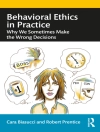This authoritative guide addresses all aspects of school psychology practice in a response-to-intervention (RTI) framework. Thirty-four focused chapters present effective methods for problem-solving-based assessment, instruction, and intervention. Specific guidelines are provided for promoting success in core academic domains–reading, writing, and math–and supporting students’ positive behavior and social-emotional functioning. The book also describes ways to team with teachers and parents to develop collaborative solutions and overcome obstacles. Grounded in research, this is an indispensable resource for daily practice and an invaluable text for school psychology training programs.
Spis treści
I. The School Psychologist as a Problem Solver: Establishing a Foundation and a Vision
1. The School Psychologist as a Problem Solver in the 21st Century: Rationale and Role Definition, Ruth A. Ervin, Gretchen Gimpel Peacock, and Kenneth W. Merrell
2. Choosing Targets for Assessment and Intervention: Improving Important Student Outcomes, Renee O. Hawkins, David W. Barnett, Julie Q. Morrison, and Shobana Musti-Rao
II. Assessment and Analysis: Focus on Academic Outcomes
3. Analysis of Universal Academic Data to Plan, Implement, and Evaluate Schoolwide Improvement, Amanda M. Van Der Heyden
4. Assessment of Cognitive Abilities and Cognitive Processes: Issues, Applications, and Fit within a Problem-Solving Model, Randy G. Floyd
5. Assessment of Academic Skills in Reading within a Problem-Solving Model, Amanda M. Marcotte and John M. Hintze
6. Assessment of Academic Skills in Math within a Problem-Solving Model, Matthew K. Burns and David A. Klingbeil
7. Assessment of Academic Skills in Written Expression within a Problem-Solving Model, Kristin A. Gansle and George H. Noell
8. Selecting Academic Interventions for Individual Students, Edward J. Daly III, Kristi L. Hofstadter, Rebecca S. Martinez, and Melissa Andersen
III. Assessment and Analysis: Focus on Social Emotional and Behavioral Outcomes
9. Schoolwide Analysis of Data for Social Behavior Problems: Assessing Outcomes, Selecting Targets for Intervention, and Identifying Need for Support, Kent Mc Intosh, Wendy M. Reinke, and Keith C. Herman
10. Assessing Disruptive Behavior within a Problem-Solving Model, Brian K. Martens and Scott P. Ardoin
11. Assessing Internalizing Problems and Well-Being, David N. Miller
12. Using Functional Assessment to Select Behavioral Interventions, Kevin M. Jones and Katherine F. Wickstrom
IV. Implementing Prevention and Intervention Strategies
13. Guidelines for Evidence-Based Practice in Selecting Interventions, Karen Callan Stoiber and Jennifer L. De Smet
14. Proactive Strategies for Promoting Learning, Kenneth W. Howell and Joan Schumann
15. Proactive Strategies for Promoting Social Competence and Resilience, Kenneth W. Merrell, Verity H. Levitt, and Barbara A. Gueldner
16. Evidence-Based Reading Instruction: Developing and Implementing Reading Programs at the Core, Supplemental, and Intervention Levels, Sylvia Linan-Thompson and Sharon Vaughn
17. Evidence-Based Math Instruction: Developing and Implementing Math Intervention Programs at the Core, Supplemental, and Intervention Levels, David J. Chard, Leanne R. Ketterlin-Geller, Kathleen Jungjohann, and Scott K. Baker
18. Evidence-Based Written Language Instruction: Teaching Written Language Skills at the Core, Merilee Mc Curdy, Stephanie Schmitz, and Amanda Albertson
19. Peer-Mediated Intervention Strategies, Leslie Mac Kay, Theresa Andreou, and Ruth A. Ervin
20. Self-Management Interventions, Kathryn E. Hoff and Kristin D. Sawka-Miller
21. Interventions for Homework Problems, Donna Gilbertson and Rebecca Sonnek
22. Teaching Functional Life Skills to Children with Developmental Disabilities: Acquisition, Generalization, and Maintenance, Ronnie Detrich and Thomas S. Higbee
23. Parents and School Psychologists as Child Behavior Problem-Solving Partners: Helpful Concepts and Applications, Patrick C. Friman, Jennifer L. Volz, and Kimberly A. Haugen
24. Parent Training: Working with Families to Develop and Implement Interventions, Mark D. Shriver and Keith D. Allen
25. Problem-Solving Skills Training: Theory and Practice in the School Setting, Bryan Bushman and Gretchen Gimpel Peacock
26. Cognitive-Behavioral Interventions for Depression and Anxiety, Susan M. Swearer, Jami E. Givens, and Lynae J. Frerichs
27. Strategies for Working with Severe Challenging and Violent Behavior, Lee Kern, Jaime L. Benson, and Nathan H. Clemens
28. Psychopharmacological Interventions, George J. Du Paul, Lisa L. Weyandt, and Genery D. Booster
V. Evaluating Interventions
29. Summarizing, Evaluating, and Drawing Inferences from Intervention Data, Edward J. Daly III, David W. Barnett, Sara Kupzyk, Kristi Hofstadter, and Elizabeth Barkley
30. Empirical and Pragmatic Issues in Assessing and Supporting Intervention Implementation in Schools, George H. Noell
VI. Building Systems to Support the Problem-Solving Model
31. Collaboration across Systems to Support Children and Families, Susan M. Sheridan, Katie L. Magee, Carrie A. Blevins, and Michelle S. Swanger-Gagné
32. The School Psychologist’s Role in Assisting School Staff in Establishing Systems to Manage, Understand, and Use Data, Elizabeth Schaughency, Brent Alsop, and Anna Dawson
33. Implementing the Problem-Solving Model with Culturally and Linguistically Diverse Students, Robert L. Rhodes
34. Making Problem-Solving School Psychology Work in Schools, W. David Tilly III, Bradley C. Niebling, and Alecia Rahn-Blakeslee
O autorze
Gretchen Gimpel Peacock, Ph D is Professor and Department Head of Psychology at Utah State University. She served as program director of the School Psychology Program from 1997 to 2009. Her research, publications, and professional presentations focus on child behavior problems and associated family issues, as well as professional issues in school psychology. She serves on the editorial advisory boards of several school psychology and related journals. Dr. Gimpel Peacock is coauthor of
School Psychology for the Twenty-First Century, Second Edition, and
Emotional and Behavioral Problems of Young Children, Second Edition, and coeditor of
Practical Handbook of School Psychology, among other books.
Ruth A. Ervin, Ph D, is Associate Professor at the University of British Columbia. Dr. Ervin’s research addresses the research-to-practice needs of local school districts and promotes a preventative and problem-solving approach to addressing the academic and emotional-behavioral needs of children and adolescents.
Edward J. Daly III, Ph D, is Professor of Educational (School) Psychology at the University of Nebraska-Lincoln. Dr. Daly’s research and publications are in the areas of developing functional assessment methods for reading problems and the measurement and evaluation of academic and behavioral interventions.
Kenneth W. Merrell, Ph D, until his death in 2011, was Professor of School Psychology and Director of the Oregon Resiliency Project at the University of Oregon. For 25 years, Dr. Merrell’s influential teaching and research focused on social-emotional assessment and intervention for at-risk children and adolescents and social-emotional learning in schools. He published over 90 peer-reviewed journal articles; several books and nationally normed assessment instruments; and the Strong Kids programs, a comprehensive social and emotional learning curriculum. Dr. Merrell was a Fellow of the Division of School Psychology (Division 16) and the Society for Clinical Child and Adolescent Psychology (Division 53) of the American Psychological Association. He received the Senior Scientist Award from Division 16, the Division’s highest honor for excellence in science.












